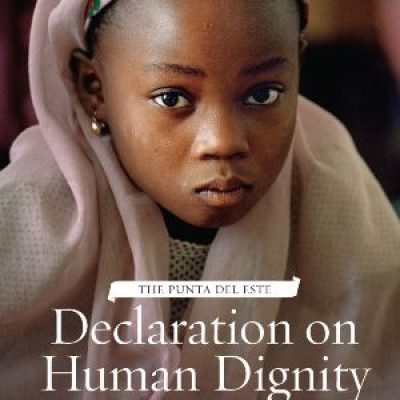Talk About: Law and Religion
Blog of
The International Center
for Law and Religion Studies
Featured Conversations
Recent Posts

Last year a draft law was presented in the Israeli parliament regulating a variety of issues regarding religion in public spaces. In particular, the law prohibits public authorities from interfering with the putting on of, or the helping of others put on, tefillim (phylacteries) in public spaces. The draft law also prohibits public authorities from impeding the act of praying in a public space or public building. However, in a synagogue or educational institution, authorities may require that any prayer be conducted according to local Jewish custom. The draft law also establishes the duty to install a mezuzah (scroll case) in public buildings.
One can study this draft law as part of a series of legislative initiatives launched by the parliamentary coalition composed of religious and right-oriented parties currently ruling in Israel; in that light, the draft law could be seen as the result of what has been defined as an alliance between religious-infused markers of identity and the current populist assault on constitutional democracy in Israel….

In 2018, Hungarian Prime-Minister Viktor Orbán labeled the country’s political regime an “illiberal Christian democracy,” emphasizing his government’s interest in appropriating Christianity for the illiberal democratic context and Hungary’s clashes with more liberal members of the EU and with the Union itself. Professor Renáta Uitz (Royal Holloway, University of London; CEU Democracy Institute) discusses the origin and phenomenon of illiberal democracies in Eastern Europe and beyond and explains why and how these regimes utilize religion and religious groups for political ends. Uitz focuses on different sources of Hungarian and Polish political Christian theology and the role of “traditional values” incorporated into several Eastern European constitutions. She also elaborates on how illiberal regimes tame and silence democratically oriented religious communities and clergy by making oppositional activities too costly for them.

The final judgment of the European Court of Human Rights (ECtHR) in the case of Executief van de Moslims in België and Others v. Belgium (13 February 2024) could not have been more clear. The seven judges unanimously held that the Flemish and Walloon decrees banning ritual slaughter of animals without prior stunning did not constitute a violation of Article 9 (freedom of religion or belief) or of Article 14 (nondiscrimination), read in conjunction with Article 9 of the European Convention on Human Rights (ECHR). This decision ended the appeal of several Belgian Muslim and Jewish organizations and individuals seeking a legal exemption that would allow them to slaughter animals according to their religious convictions. The ECtHR judgment prompted debate among, and critical feedback from, European FoRB experts.

Armenia’s Religion-State Relations: Not Much Room for Optimism
by Isabella Sargsyan
On 5 January 2026 Armenia’s Prime Minister, Nikol Pashinyan, formally launched what he described as a reform of the Armenian Apostolic Church (hereinafter the Church or Armenian Church, interchangeably), reading a statement at his residence in the presence of 10 senior clergy who had called for the resignation of Catholicos of All Armenians Garegin II, the Church’s supreme head. The document—which Pashinyan signed in his capacity of Prime Minister—outlined a roadmap for the implementation of reforms, including the removal of the current Catholicos and the formation of a Coordinating Council comprised of Pashinyan and the above-mentioned clerics. This roadmap purportedly addresses perceived failures of Church leadership and condemns the “uncanonical practice of involving the Church in politics and using it to serve various agendas and interests.”
Search Topics in Law and Religion
Explore topics such as COVID-19, Gender, Jewish Law, LGBTI+, Marriage, Religious Exemption, and Security
Anti-Extremism | Assisted Dying | Autocephaly | Children | Church-State Relations | Constitutional Space | COVID-19 | Death Penalty | Definition of Religion | Digitalization | Discrimination | Equality | Extremism | Family | Family Law | Freedom of Expression | Gender | Genocide | Hagia Sophia | Human Dignity | Human Rights | In Memoriam | Interfaith Dialogue | Islamic Law | Jewish Law | LGBTI+ | Marriage | Minorities | Peacebuilding | Pluralism | Politics | Race | Reasonable Accommodation | Religious Autonomy | Religious Exemption | Religious Freedom | Religious Institutions | Religious Law | Rule of Law | Secularity | Security | Social Service | Ukraine | Russia | War | Digitalization | Humanitarian Aid | Religion and Constitution
Subscribe to our Monthly Newsletter
Fill out the form below to receive updates on topics in law and religion.




